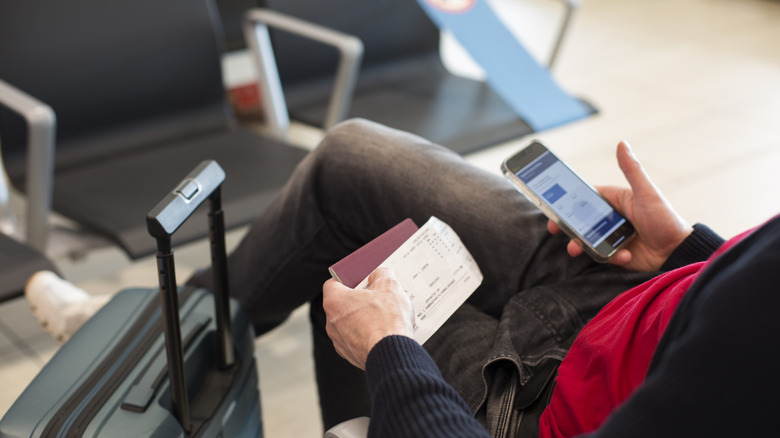What You Need To Know About Italy's Latest Flight Cancellations Before Your Trip
There's no denying it — cancelled flights are a drag. Italy just experienced a major aviation disruption: at least 72 flights were canceled, and many more delayed, amid a nationwide 24-hour strike called by airline and airport staff. The action, which took place September 26, involved pilots, cabin crew, ground handling employees, baggage handlers, security staff, and other support personnel.
Major airports are feeling the pain. Milan's Malpensa and Linate, Naples, Bologna, Venice Marco Polo, Rome Fiumicino, and Sardinia's Cagliari Elmas are among the hubs that reported severe delays or cancellations. In Milan alone, at least 35 flight cancellations were logged. The strike overlapped with other walkouts, including ground staff, which compounded the disruption.
Why now? The unions behind the strike — CUB Trasporti and USB — are demanding better pay, fairer contracts, and improved working conditions throughout Italy's air transport sector. The dispute has been brewing for months, and the unions see this coordinated walkout as leverage to force change. This isn't just a local flare-up. This could potentially be the start of a turbulent period: further strikes are already on the calendar, including more airport staff and transport walkouts through October.
What you should know before you fly
If your trip includes travel to, from, or within Italy in early October, you'll want to prepare accordingly. First, check your flight status constantly. Airlines and airports are updating cancellation lists throughout the day. Many airports (especially Milan's) are advising passengers to call or check online before leaving for the terminal.
Second, know the protected "guaranteed" time windows under Italy's aviation rules. Flights scheduled from 7AM to 10AM and 6PM to 9PM are supposed to run even during strikes. Also, some services — especially to islands like Sicily and Sardinia with limited alternative access — are often excluded from cancellations to avoid isolating communities. But be aware: "guaranteed" doesn't always mean on time. Even within those windows, staffing shortages or secondary delays may ripple.
Third, know your rights, and your options. Under EU passenger regulations, if your flight is canceled or delayed significantly, you may be eligible for rebooking, refunds, or compensation (unless the cause is deemed "extraordinary"). Even when a strike is involved, airlines often offer rebooking flexibility as a gesture of goodwill to avoid mass claims. Just make sure to contact the airline ASAP to find an alternate route. Also consider alternate modes of travel. If your journey involves segments on the ground (like traveling between cities in Italy), look into trains or buses to bypass affected airports. And build extra buffer time into your itinerary: not just for the flight, but for transfers, baggage delays, or rerouting.
Smart tips to mitigate your risk
Book flexible or refundable tickets when possible, and consider flying during protected hours. If your outbound or return flight can fall within the 7AM to 10AM or 6PM to 9PM windows, it may stand a better chance of operating. But don't rely on it entirely — confirm with your carrier.
Have backup plans. If your flight is canceled, proactively ask for alternative travel routes (possibly via another European hub) or train and bus options. If you're connecting through Italy, try to give yourself time in case the second leg is canceled or delayed. Arrive early and travel light. Strike days often mean longer security lines, slower baggage handling, and staffing gaps. Arriving three hours before departure might save you some stress. Plus, traveling with a carry-on only reduces the risk of lost or delayed bags.
Stay vigilant on strike schedules. The September 26 action was just the beginning — further strikes involving rail, airport staff, and local transport are already planned for early October. Regularly consult Italy's national transport strike calendar or the Italian Civil Aviation Authority (ENAC) site. In the end, the disruption may not touch every traveler, but for many, delays and cancellations are a real possibility. If you go in with smart flexibility, patience, and a backup plan, you'll be better equipped to ride out whatever turbulence the strikes throw your way.


